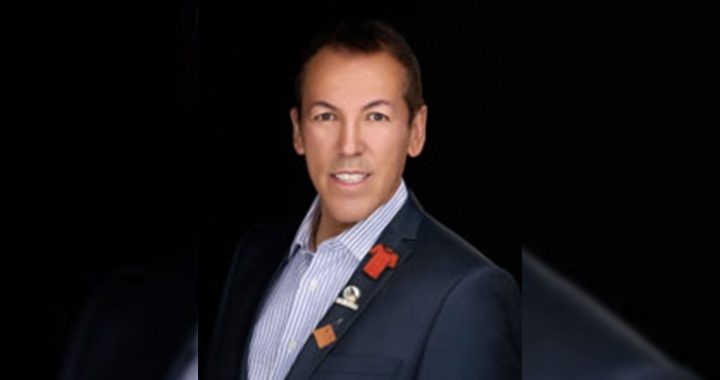Manitoba's cigarette battle with Dakotas could end with blockades: Nelson
A battle between Manitoba and Dakota communities over cigarette taxes could spread across the province and ignite rail blockades and other actions, says one of the candidates running for national chief of the Assembly of First Nations.
By Jorge Barrera
APTN National News
A battle between Manitoba and Dakota communities over cigarette taxes could spread across the province and ignite rail blockades and other actions, says one of the candidates running for national chief of the Assembly of First Nations.
A Manitoba court on Wednesday handed down a temporary injunction against the Dakota to shut down their smoke shop which has been selling tax-free cigarettes manufactured by Mohawk company Rainbow Tobacco, of Kahnawake Territory in Quebec.
The Dakota, however, said they would ignore Manitoba’s injunction and keep the Chundee Smoke Shop open because the Dakota never signed any treaties giving Manitoba jurisdiction over their territory.
“There is no turning back,” said Canupawakpa Dakota Chief Frank Brown. “Where is the legal documentation on provincial jurisdiction over the Dakotas?”
Brown said he is willing to go to jail if the province and the RCMP attempt to shut down the smoke shop, near Pipestone, Man.
“If the province wants to use the RCMP illegally, to illegally arrest us and illegally put us in jail, that is their doing and the world is going to know that,” said Brown. “They are like organized crime.”
Former Roseau River chief Terry Nelson, who is running for national chief of the AFN, said he is planning on selling Mohawk cigarettes informally throughout Winnipeg in support of the Dakota.
“Now we are going to look at the 700,000 people in Winnipeg as our market,” said Nelson.
Nelson wouldn’t say how the cigarettes would be sold throughout the city which would go for about $20 a carton.
“We are not in it for the money, we are in it for the point,” said Nelson.
Nelson said the Ojibway under Treaty 1, which covers Winnipeg, have a right to sell tobacco which he said was stolen from Indigenous people by the “white man.”
A carton of cigarettes in Winnipeg goes for about $108 a carton, he said.
Nelson also said there will be swift reaction if the RCMP is sent in to enforce the injunction against the Dakotas.
“If these guys start using the RCMP and guns to shut them down, there is going to be retaliation and the blocking of railway lines,” said Nelson. “If something happens to them, if someone gets killed, hauled away in handcuffs and dragged or women are getting beaten then the RCMP have a hell of a problem. That is when you will see cars on the railway tracks, because that’s the end of treaty.”
Nelson said any bloodshed initiated by authorities would ignite a national backlash.
The Chundee Smoke Shop has been raided five times and the province has laid over 60 charges alleging the cigarettes are not licensed for sale in Manitoba. Despite the repeated crackdowns, the Dakota remain defiant.
They showed their defiance on Wednesday, as Dakotas on horseback led about 100 protestors to the court house in Winnipeg. Brown and Dakota Wahpeton Plains Chief Orville Smoke refused to participate in the proceedings. The chiefs arrived without lawyers.
“The lawyers are in a conflict of interest and the courts are in a conflict of interest, everything is one-sided,” said Brown. “It’s their provincial court, their lawyers and their judges.”
Brown said revenue from the smoke shop has allowed them to buy a fire truck and bison meat for their communities, which suffer from 90 per cent unemployment. The money has also been used to pay for post-secondary education for some of the communities’ youth, said Brown.
The Dakota have also been seeking international support for their cause.
Brown and Smoke both met with officials from the Iranian embassy in Ottawa this past March along with Nelson. They both sent representatives to accompany Nelson when the former Roseau River chief announced his candidacy for AFN national chief at a mosque in April.
Brown said the Dakota follow the “law of the land,” and called the provincial government a “corporation” that follows “admiralty law,” in reference to thinking associated with the sovereign citizen movement.
“Admiralty law is the law of the sea, it is the people that are on ships and they have a different law on water and the ones on water follow that law. That admiralty was brought into our land and it is being used,” said Brown. “That law belongs to the sea, to the water. The courtroom represents the ship and we are not stepping into that.”
The ideas associated with viewing provinces and Canada as corporations that only have authority over individuals who allow themselves to be controlled have gained traction in many First Nations communities over the years, including in the Mohawk community of Akwesasne.
The sovereign citizen movement has also flourished in the U.S.










